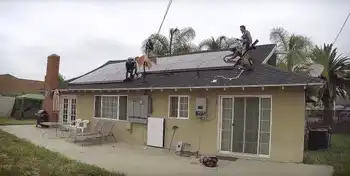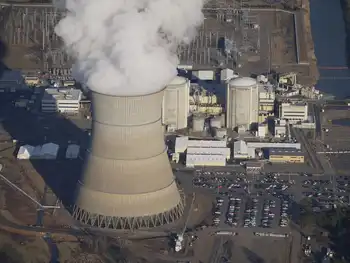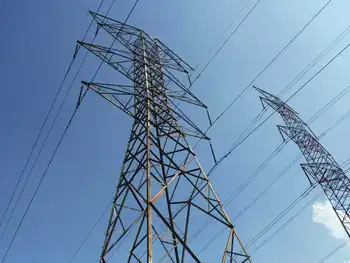Putting B.C.'s bioenergy potential into action over a decade
"The Williams Lake energy plant has long demonstrated how bioenergy fuels can deliver clean and reliable power to British Columbia," said EPCOR BC vice president Fred Shafai. "EPCOR supports the B.C. Government's move to further expand opportunities for this fuel type and we are developing plans for similar plants, building on the success at Williams Lake and using the forestry residue and beetle-killed pine trees as fuel."
On average, 80 to 100 truck loads of wood-waste material arrive at the plant every weekday from area sawmills, amounting to over 600,000 tonnes annually. Over the last 15 years, the energy plant has eliminated nine million tonnes of wood-waste that would have previously been disposed in beehive burners. The beetle-killed timber used in the plant also eliminates the natural production of methane, a greenhouse gas that is 21 times more potent than CO(2), created when the timber is left to rot.
In 2007 the 66 megawatt facility generated enough carbon-neutral electricity to meet the average annual needs of 89,000 homes in B.C. Twenty-eight full-time staff operate this state-of-the-art facility, which is equipped with combustion and emission controls. The plant surpasses all air emissions permit levels that are already five times more stringent than existing regulations for wood-waste-fired boilers.
"I'm very proud of the commitment our staff have to operating this facility in the safest, most environmentally friendly manner possible," said Plant Manager Geoff Wagner. "We all recognize the importance of this plant to the community and to the local economy."
By operating using fuel from wood waste, the plant has delivered a solution to a long-standing air quality problem in the area caused by beehive burners.
"Air quality in Williams Lake was a major concern before the energy plant," said Williams Lake Mayor Scott Nelson. "The energy plant not only provided an effective solution of disposing of the area's wood-waste, it has provided a carbon neutral source of electricity, fantastic jobs, and has long been the city's biggest tax-payer."
The plant began generating power in the spring of 1993 and marks its 15th anniversary in 2008. EPCOR assumed operation of the facility in September 2005.
Related News

Tesla reduces Solar + home battery pricing following California blackouts
LOS ANGELES - Pacific Gas & Electric’s (PG&E) shutoff of electric supply to residents in California’s Bay Area has caught the attention of Tesla and SpaceX CEO Elon Musk, who has announced that he would be offering a price reduction of approximately 10% for a solar panel and Tesla Powerwall battery installation. The discount will be available to anyone interested in powering their homes with solar energy, not just the 800,000 affected homes in the Bay Area.
After initially tweeting a link to Tesla’s Solar page on Tesla.com, Musk added that he would be offering a “~10% price reduction” in installation…





